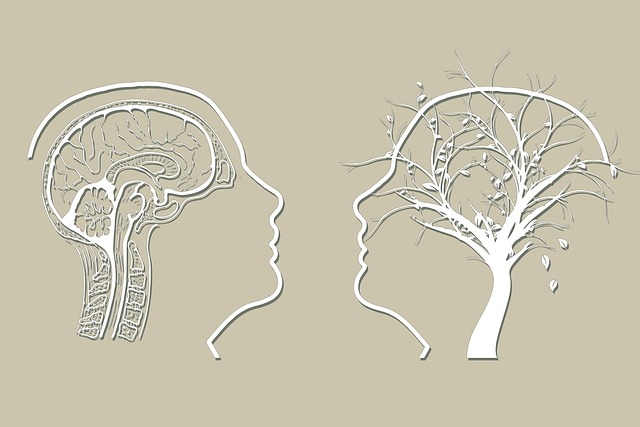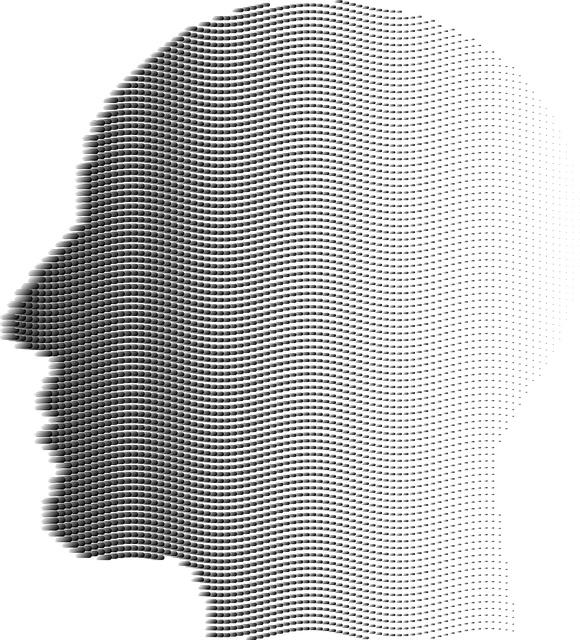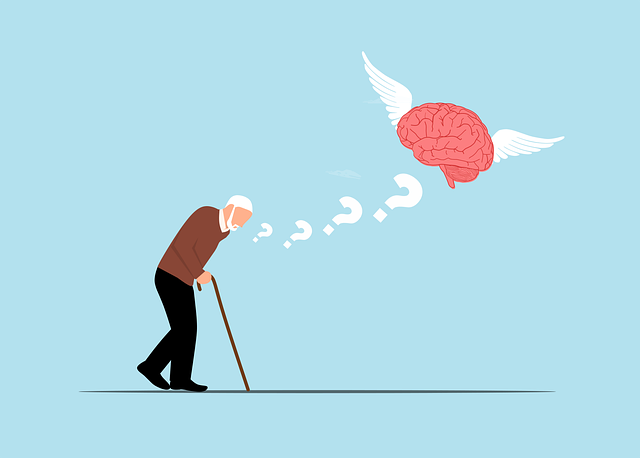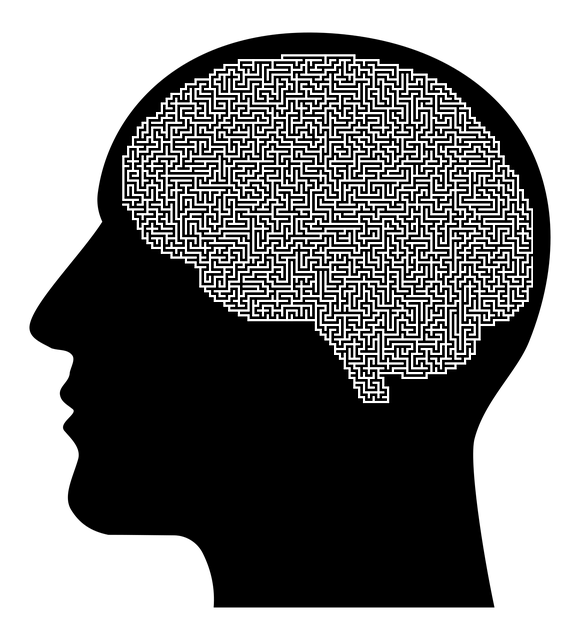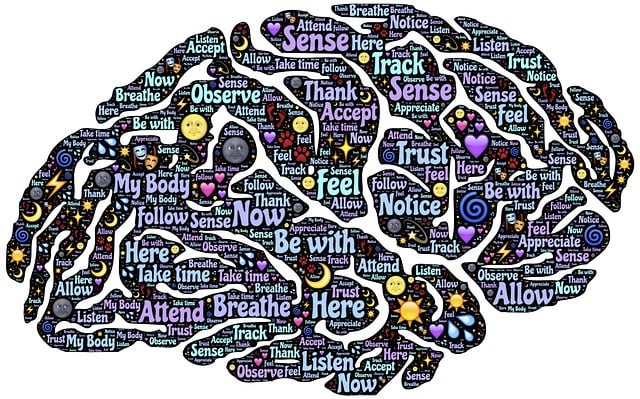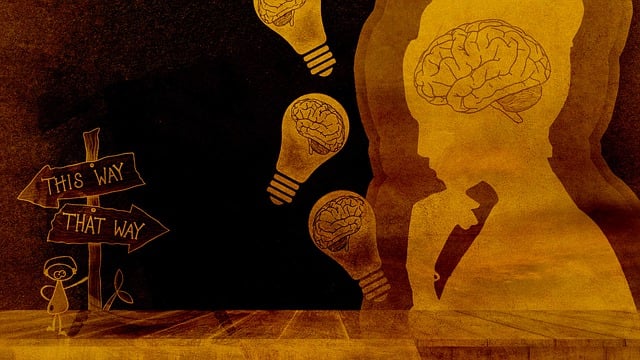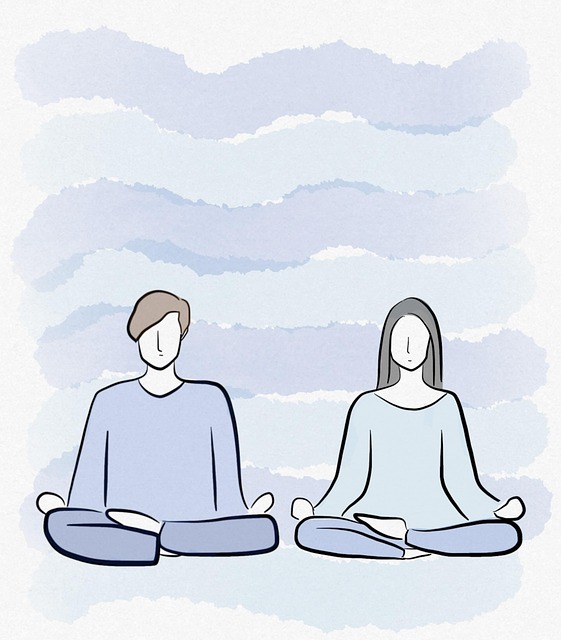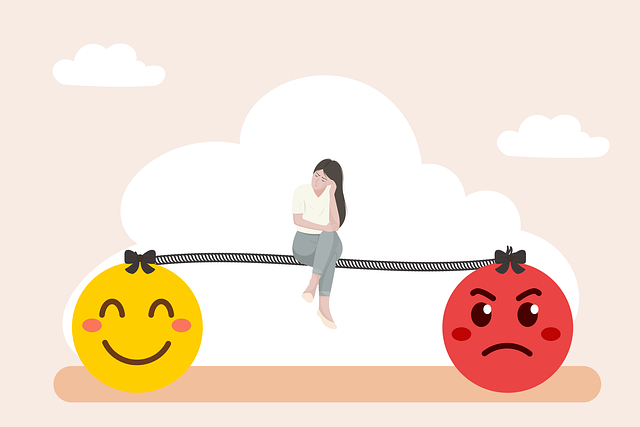Mindfulness meditation is a powerful therapy for Attention Deficit Hyperactivity Disorder (ADHD) and Attention Deficit Disorder (ADD), offering accessible training in present-moment awareness that improves focus. Benefits are seen across all ages, from children to adults, without the need for extensive evaluations. This ancient practice encourages non-judgmental observation of thoughts and feelings, fostering calm and clarity. In healthcare, mindfulness prevents burnout and enhances well-being. Integrating mindfulness into communication and mental health education benefits both providers and patients with ADD/ADHD. Regular practice reduces ADHD/ADD symptoms, improves cognitive abilities, and supports anxiety relief and stress management. Creating a dedicated, quiet space and consistent daily practice maximize emotional regulation. Techniques like mindful breathing and structured routines overcome common challenges, while celebrating small victories boosts self-esteem. Long-term integration into daily activities offers sustained benefits, empowering individuals to navigate challenges with clarity and resilience, particularly during ADD/ADHD evaluations.
“Unwind your mind and discover a powerful tool for managing attention-deficit/hyperactivity disorders (ADD/ADHD) with mindfulness meditation. This practice, often considered a game-changer in therapy for ADD-ADHD evaluations, offers profound benefits for focus and concentration. Learn how to harness its potential through our comprehensive guide. From understanding the basics to setting up a routine, overcoming challenges, and integrating mindfulness into your daily life, we’ll navigate you through every step, ensuring long-term success in cultivating awareness and improving attention.”
- Understanding Mindfulness Meditation for ADD/ADHD
- Benefits of Mindfulness Practice for Focus and Attention
- Setting Up a Successful Mindfulness Meditation Routine
- Techniques to Overcome Common Challenges During Meditation
- Integrating Mindfulness into Daily Life for Long-Term Success
Understanding Mindfulness Meditation for ADD/ADHD

Mindfulness meditation has emerged as a powerful tool to support individuals with Attention Deficit Hyperactivity Disorder (ADHD) or Attention Deficit Disorder (ADD). It offers a unique approach to managing symptoms by fostering present-moment awareness and improving focus. Unlike traditional therapy, which often involves evaluating and diagnosing through extensive assessments, mindfulness practices can be accessible and beneficial for all ages, including children, adolescents, and adults with ADD/ADHD.
This ancient technique encourages individuals to observe their thoughts and feelings without judgment, promoting a sense of calm and clarity. In the context of healthcare, especially for those in high-pressure fields like medicine, mindfulness can serve as an effective burnout prevention strategy. By integrating communication strategies and mental health education programs that incorporate mindfulness meditation, healthcare providers can enhance their well-being and better support their patients with ADD/ADHD.
Benefits of Mindfulness Practice for Focus and Attention

Mindfulness meditation has emerged as a powerful tool to enhance focus and attention, offering significant benefits for individuals seeking better mental clarity and concentration. Regular practice can help reduce symptoms associated with Attention Deficit Hyperactivity Disorder (ADHD) or Attention Deficit Disorder (ADD), as demonstrated in various therapy for ADD-ADHD evaluations. By training the mind to stay present, mindfulness cultivates a heightened state of awareness that translates into improved cognitive abilities.
This ancient technique encourages individuals to observe their thoughts and emotions without judgment, leading to better regulation of attention. Incorporating mindfulness into daily routines can significantly contribute to overall mental wellness coaching programs development by fostering anxiety relief and effective stress management. It enables individuals to navigate the challenges of modern life with a calmer and more focused mind, making it an invaluable asset for anyone seeking to optimize their cognitive performance.
Setting Up a Successful Mindfulness Meditation Routine

Creating a dedicated space for mindfulness meditation is the first step toward success. Designate a quiet area free from distractions where you can comfortably sit and focus. This ritualized environment signals to your mind that it’s time to calm and center, aiding in emotional regulation—a benefit particularly relevant for individuals undergoing ADD-ADHD evaluations or seeking self-esteem improvement. Consider incorporating elements like soft lighting, soothing scents, or a comfortable cushion to enhance your practice.
Establishing a consistent routine is key. Choose a time of day that works best for you and stick to it. Morning sessions can help set a calm tone for the day, while evening practices may allow you to unwind and reflect on the past 24 hours. Remember, mindfulness is not about achieving perfection; it’s about showing up consistently. Your healthcare provider or cultural competency training might suggest modifications tailored to your unique needs, ensuring your practice remains accessible and beneficial.
Techniques to Overcome Common Challenges During Meditation

Overcoming common challenges during meditation is essential for reaping its numerous benefits, especially for those navigating issues like ADD/ADHD. For individuals with attention difficulties, maintaining focus can be a significant hurdle. One technique to enhance concentration is mindful breathing exercises, where you gently direct your attention to each inhalation and exhalation, allowing thoughts to come and go without judgment. This practice strengthens the mind’s ability to stay present.
Additionally, setting realistic expectations and creating a structured environment can aid in overcoming meditation challenges. Establishing a consistent routine, using guided meditations tailored to specific needs (like stress management or crisis intervention guidance), and incorporating mindfulness into daily activities can significantly improve meditation experiences. Remember, self-esteem improvement is also a facet of this journey; recognizing and celebrating small victories in your meditation practice will foster a sense of accomplishment, encouraging continued dedication.
Integrating Mindfulness into Daily Life for Long-Term Success

Integrating mindfulness into daily routines is key to reaping its long-term benefits and sustaining a consistent practice. Beyond dedicated meditation sessions, cultivating awareness in everyday activities enhances overall well-being. For instance, being fully present during meals allows for enhanced sensory experiences and improved digestion. Similarly, mindful walks in nature connect individuals to their surroundings, fostering a sense of calm and grounding.
This integration goes beyond mere relaxation; it empowers individuals to navigate life’s challenges with greater clarity and resilience. For those with Attention Deficit Hyperactivity Disorder (ADHD) or its related conditions, mindfulness can serve as a powerful therapy, improving focus and impulse control. By weaving mindfulness into their daily fabric, individuals not only support their mental health but also potentially alleviate burnout in high-pressure professions like healthcare, where Burnout Prevention Strategies for Healthcare Providers are increasingly essential. Moreover, this practice contributes to broader goals such as Depression Prevention within communities, promoting overall emotional well-being and resilience.
Mindfulness meditation offers a powerful tool for managing symptoms of ADD/ADHD, enhancing focus and overall well-being. By integrating regular practice into daily routines, individuals can cultivate a greater sense of calm and awareness, leading to improved attention and productivity. With consistent effort, mindfulness techniques can be a game-changer in navigating the challenges presented by ADD/ADHD, potentially reducing reliance on medication or traditional therapy for evaluations. Embracing this ancient practice with modern adaptations paves the way for long-term success in managing symptoms and improving quality of life.
